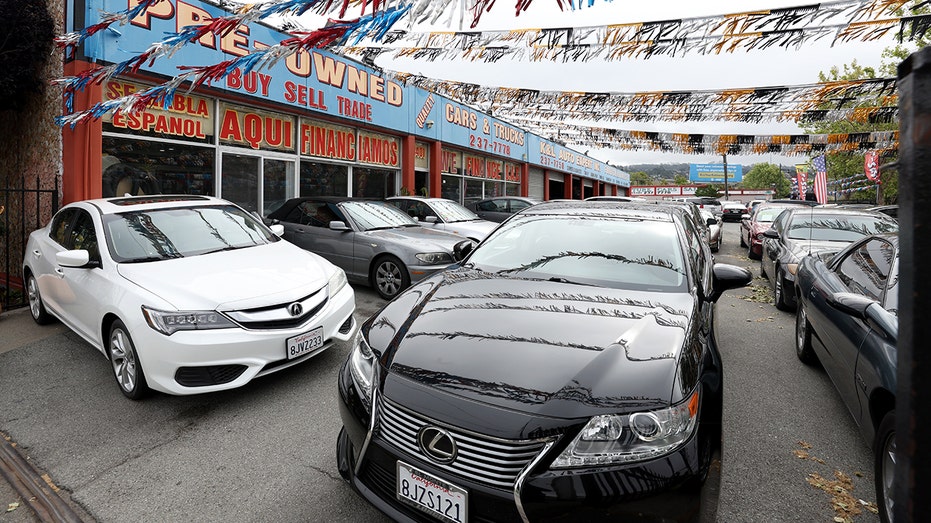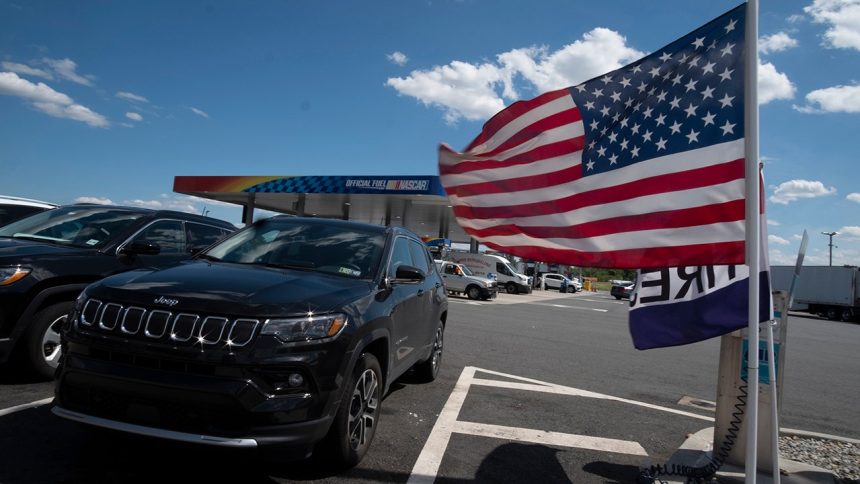A growing number of Americans are falling behind on their car payments, an ominous sign for the U.S. economy as high auto prices and stubborn inflation strain household budgets.
Car loan delinquencies tumbled in the early days of the pandemic as the government sent trillions in stimulus money to American homes and businesses. However, delinquencies have progressively ticked higher as sky-high prices for used and new cars alike forced consumers to take out bigger loans and drain their savings accounts.
At the end of December, about 7.69% of auto debt moved into delinquency — the highest level since 2010, according to New York Federal Reserve data published Tuesday.
“It’s a little bit perplexing why we’re seeing these increases in the delinquency rates, particularly for certain types of borrowers,” New York Fed researchers told reporters during a call Tuesday morning. “I think the price of cars is one clue that there might be some stress in that space.”
MORE AMERICANS ARE GETTING A SECOND JOB TO OFFSET STING OF HIGH INFLATION
The steady rise in delinquencies comes as a result of both high car prices and steep borrowing costs.
Prices for used and new vehicles surged two years ago as a result of a semiconductor shortage and other COVID-19-induced disruptions in the global supply chain. Although fewer cars were being produced, consumer demand remained strong, driving prices higher.
Prices started subsiding toward the end of 2022, but the average cost of a new car is still around $48,759 — a near-record high. While that is down 2.4% from the beginning of 2023, it remains 18% higher than the same month three years ago, before the inflation crisis began.
| Ticker | Security | Last | Change | Change % |
|---|---|---|---|---|
| F | FORD MOTOR CO. | 12.92 | +0.02 | +0.16% |
| GM | GENERAL MOTORS CO. | 43.22 | -0.20 | -0.45% |
| STLA | STELLANTIS NV | 29.21 | -0.15 | -0.51% |
The rapid spike in interest rates over the past two years has compounded the pain of higher car prices.
The average new auto loan rate fell slightly to 7.1% in December, but that remains up from 6.9% at the start of the year, according to Edmunds, an online trade resource for auto inventory and information. The average used auto loan rate, meanwhile, is 11.4%.
Even just a minor change in rates can affect how much car owners pay each month.
FED PAUSES RATE HIKES FOR SECOND TIME THIS YEAR BUT HINTS AT ANOTHER INCREASE
For many Americans, rising interest rates and high car prices have pushed their monthly payments above $1,000.

In fact, the percentage of consumers paying at least $1,000 a month for a vehicle surged to 17.1% in the second quarter of 2023 — an all-time high and up from 16.8% at the start of the year, according to data from Edmunds.
Rates are expected to remain elevated as the Federal Reserve has hinted that it will hold interest rates at elevated levels longer than previously expected until policymakers are confident that inflation has subsided.
The rise in auto loan delinquencies could be a sign of trouble for the American consumer — and the economy.
“Auto loan transitions into delinquency are still rising above pre-pandemic levels,” said Wilbert van der Klaauw, economic research adviser at the New York Fed. “This signals increased financial stress, especially among younger and lower-income households.”
Read the full article here




